WINTER 2025
WINTER WELLBEING
Boost your body’s defences
Give your medicine cabinet a makeover
Sing your way to good health

Positive pregnancy advice
Simple acts make a lasting impact


WINTER 2025
Boost your body’s defences
Give your medicine cabinet a makeover
Sing your way to good health

Positive pregnancy advice
Simple acts make a lasting impact


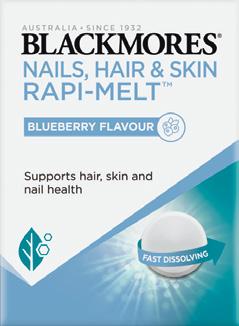
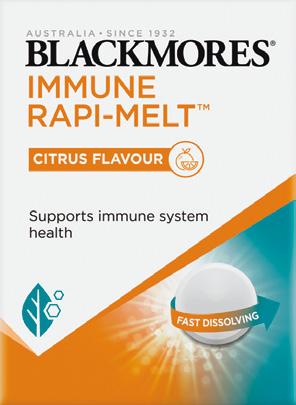
NAILS, HAIR & SKIN RAPI-MELT™
• On-the-go support for healthy hair, skin and nails. With vitamin C, Biotin, B3 & silica
• Great tasting blueberry flavour
IMMUNE RAPI-MELT™
• Supports the immune system to fight illness, with vitamin C, zinc and selenium
• Great tasting citrus flavour
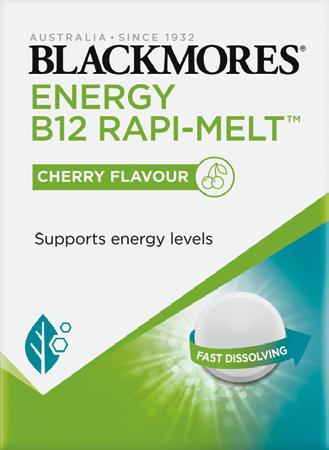
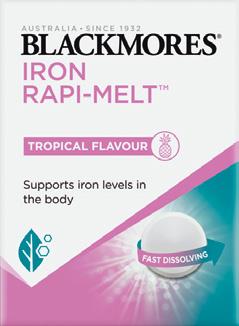
ENERGY B12 RAPI-MELT™
• 5 x more B12†
• A high dose formula, featuring 1000mcg of B12 for on-the-go energy support
• Great tasting cherry flavour
IRON RAPI-MELT™
• Well absorbed form of iron, gentle on the digestive system
• Suitable for adolescents 12+ and pregnant + breastfeeding women
• Great tasting tropical flavour
Always read the label and follow the directions for use.
*Research has shown orally disintegrating tablets rapidly disintegrate in the mouth without using water.
†Compared to Blackmores B12 75T




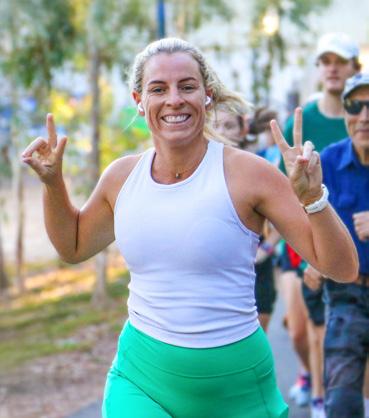

Women and Assigned Female at Birth (AFAB) people require a higher intake of protein as they go through perimenopause and menopause because the drop in oestrogen during this life stage decreases bone density and muscle mass. Nutritional scientist Dr Stacy Sims says: “Our bodies become more resistant to the muscle-building effects of protein and exercise, requiring higher doses of both.”
Women with strong muscle mass are less likely to have falls, and keeping bones strong also helps prevent osteoporosis. Dr Sims recommends perimenopausal and menopausal women eat an additional 2–2.3 grams of protein per kilogram of body weight. Nuts, seeds and legumes make great additions to weekly meals and may help boost your protein power.1
Have you joined Blooms The Chemist’s free My HealthRewards program? As a member you’ll earn one point per $1 spent on eligible purchases, receive bonus points for health checks and 200 points on your birthday. Plus, you’ll unlock reward vouchers when you become a member. Sign up online or in-store today and start saving.2
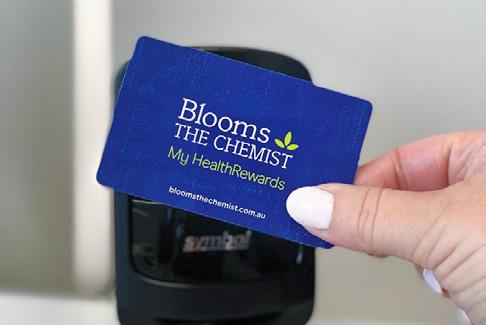
The latest from the world of health and wellbeing.
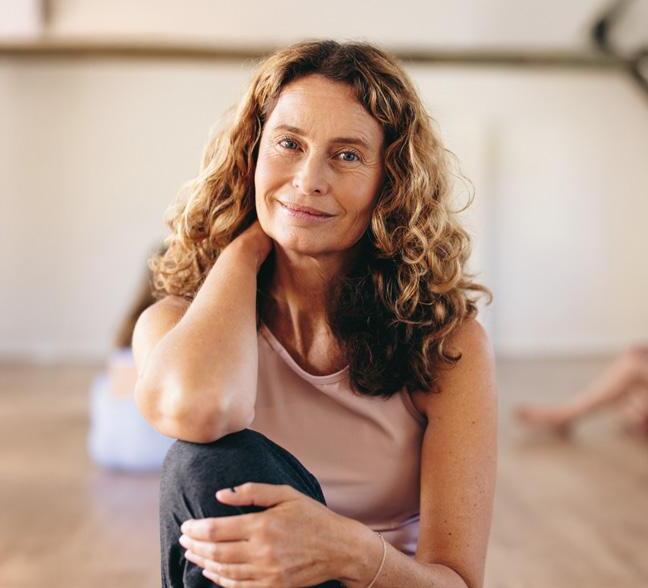

Interest in maternal DNA is rising, with research showing how mitochondria – passed only from mothers – can influence a baby’s lifelong health. This is already changing care: mitochondrial donation treatment, now legal in Australia, helps prevent inherited disorders. As testing and research evolve, families may soon personalise pregnancy planning for stronger, healthier future generations.3

Blooms The Chemist partners with Pharmacycle to recycle medicinal blister packs across over 124 stores nationwide. Since November 2022, we’ve diverted more than 22,000kg of plastic and aluminium from landfill. Simply drop your empty blister packs into the co-branded bins in-store and help promote sustainable practices in the community.4
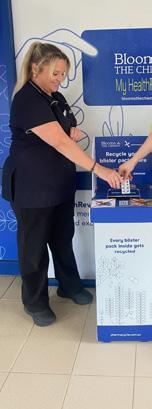




Sleep apnoea may worsen during the Winter months because of factors like increased nasal congestion, indoor heating drying out airways and seasonal weight gain. Approximately 10% of Australians experience sleep apnoea, yet over 80% remain undiagnosed. Symptoms include loud snoring, daytime fatigue and morning headaches. Higherrisk groups include males, individuals over 40 and those with obesity or a family history of sleep apnoea. For assessment and support, visit your local Blooms The Chemist.5, 6 ,7
As of 1 July 2025, the Medicare Benefits Schedule (MBS) will expand to better support women’s health across the country. These updates will include increased rebates for menopausal hormone therapy (MHT) and extended consultations for gynaecological care. The updates build on the progress that saw two new oral contraceptive pills added to the Pharmaceutical Benefits Scheme (PBS) on 1 March 2025. These changes make vital, often costly care more accessible and recognise the real, ongoing health needs of women and AFAB people. Visit www.mbsonline.gov.au to learn more.8, 9
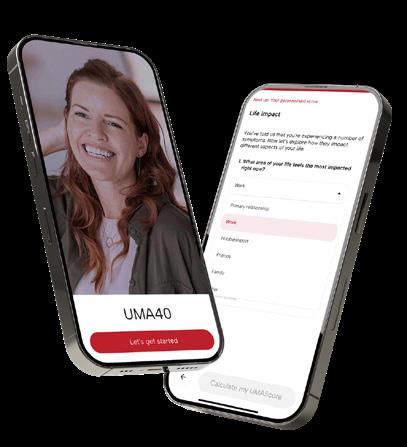

For women over 40, Metluma’s UMA40 science-backed symptom tracker is making it easier to monitor the symptoms of perimenopause and menopause. In just five minutes, the tracker can analyse symptoms, spot health patterns and provide users with a personalised UMAScore, as well as offer access to expert care plans.10

A 2024 study led by Mingyang Song of the Harvard T.H. Chan School of Public Health found that regular coffee drinkers have higher levels of beneficial gut bacteria, potentially explaining coffee’s link to reduced chronic disease risk. The Associate Professor of Clinical Epidemiology says that while there is “compelling evidence, excessive intake may lead to adverse effects”.11











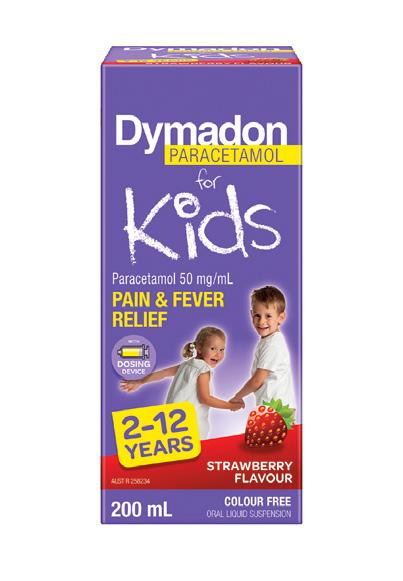
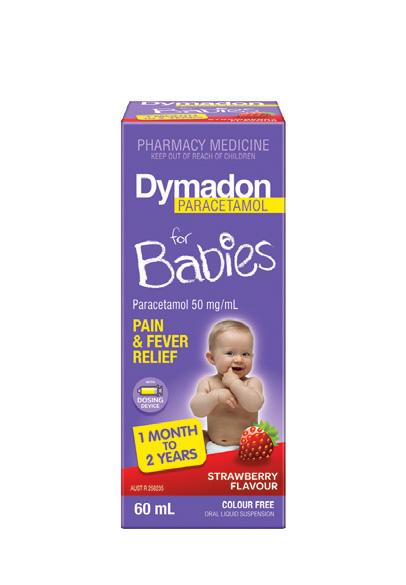
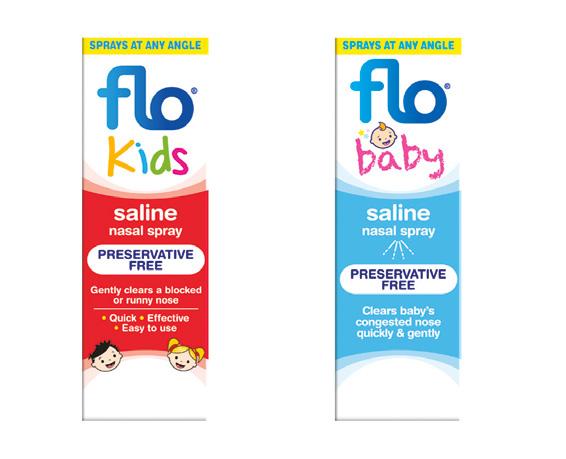



We
Tom (Qiannan) Xin from Blooms The Chemist Melton, Victoria, enjoys supporting his local community.

What first brought you to Melton?
I’ve studied and worked in Victoria for over a decade and lived in a range of places, including Melbourne, Kyneton and Ballarat. I heard about Melton when I lived in Ballarat and I’ve kept my eye on it ever since. I love that it’s close to the city and that it’s going to grow quickly!
Describe your community
The local community is full of potential – people here are very welcoming and open. Melton is family-friendly and has a vibrant community with nature all around, including parks and nature reserves. There are a lot of sports clubs and local events, which really helps the local community get together. There’s always something happening!
What do you love most about living in Melton?
It’s close enough to the city that I can see my friends and family, but it’s far enough away that I can raise my family in a vibrant and friendly community.
What’s the best part of your job?
Pharmacists are often the most accessible healthcare professionals, especially in communities where Doctors may
We have a unique opportunity to help our local Doctors in some cases. We can help our customers with their health
“We can help our customers with their health issues and concerns, and point them in the direction of their Doctor if we need to.”
issues and concerns, and point them in the direction of their Doctor if we need to.
How does Blooms The Chemist Melton give back to the community?
Apart from providing great advice and medications for our community, we also offer Webster Packing and delivery of medication to our customers who need extra assistance managing their health.
We strive to solve all healthcare problems for our customers in a timely manner and act as a bridge between the customer and their local Doctor.
Which customer would you like to give a shout-out to?
There are too many to choose from, but I’d like to shout out Eric, Janice, Paul, Maria, Phillip and Lindsay!
What do you love doing outside work?
I spend time with my family and play badminton. If anyone knows of any badminton clubs in Melton, send them my way.
Something not many people know about you I served in the military over a decade ago.
Do you have a favourite joke?
I told my wife she should embrace her mistakes … so, she hugged me.
Favourite place in Australia and why?
The Gold Coast. I love the warm, sunny weather and the laid-back culture.
Sum yourself up in three words Smiley, passionate, handsome!




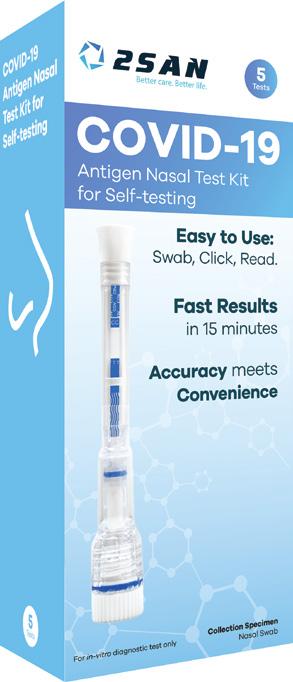



Here’s why keeping your vaccinations up to date as an adult may help you stay healthy and ward off illnesses.
As we head into Winter, many Australians prepare for cold and flu season with vitamin C, a flu shot and a few extra layers.
But what about when it’s not cold and flu season? It can be easy to forget that vaccination is a powerful tool to protect you from illness year-round.
While childhood immunisations tend to stay front-of-mind for families, adults often let their own vaccine protection lapse, only thinking about it before travelling overseas or after an injury.
• Australia may face a tough Winter as respiratory viruses like flu, COVID-19, RSV and Norovirus circulate.1
• Immunity from certain diseases –like measles, mumps and rubella – fades over time, which is why staying up to date with vaccinations is encouraged.2
• Vaccinations help protect you and vulnerable people in the community, including the elderly and the immunocompromised.3
As seasonal illness surges and virus trends from overseas indicate what’s to come for Australia, it’s time to check your vaccine status, and take action to protect your health and your community.
Each year, Winter brings a substantial increase in respiratory illnesses and 2025 isn’t looking any different. Australia often experiences similar viral trends to the United States, and this year the US has faced a so-called ‘quad-demic’ of influenza, COVID-19, Norovirus and respiratory syncytial virus (RSV).4 →
“Not enough people are accessing vaccines that can stop diseases such as whooping cough and shingles, which increase in risk as we age.”
– Elizabeth de Somer, CEO of Medicines Australia
Medical experts are urging Australians to be prepared.
“I am deeply concerned about the continued declining uptake of influenza vaccines,” says Professor Tony Lawler, Australia’s Chief Medical Officer (CMO). “Vaccination is an important measure for everyone aged six months and over.” 5
And it’s not just the flu to protect ourselves from. Respiratory syncytial virus and COVID-19 are still circulating, and cases of vaccine-preventable diseases like measles and whooping cough have re-emerged in Australia and internationally.6
Many adults don’t realise that immunity to some diseases can fade over time or that new vaccinations may be recommended as we age.
According to the Australian Government Department of Health and Aged Care, the following vaccines are recommended for adults in various age groups or with particular health risks:⁷
• Influenza (flu): Recommended annually for all adults, especially those over 65, First Nations and Torres Strait Islander people, pregnant people and those with chronic health conditions.
• COVID-19: Booster doses are advised for older adults and those with underlying conditions. Check current guidelines at your local Blooms The Chemist.
• Pneumococcal: Recommended for adults over 70 or younger people with certain medical conditions.
• Shingles (herpes zoster): A free vaccine is available for adults aged 65, First Nations people aged 50 and over, and individuals who are at risk.
• Whooping cough (pertussis): Adults should receive a booster every 10 years, particularly if they’re around young children or infants.
• Measles, mumps, rubella (MMR): Adults born after 1965 who haven’t received two doses of MMR may require a catch-up dose.
Vaccine fatigue or just forgetting?
It’s no surprise that some Australians might feel ‘vaccine fatigue’ after the pandemic years. With constant messaging, multiple boosters and an overload of information, it’s easy to feel overwhelmed or simply tune out.

Whatever the time of year, your local Blooms The Chemist can offer advice tailored to your vaccination needs, depending on your life stage and other considerations. These Winter immunisations are all offered in-store:
COVID-19
• Influenza (flu)
• Shingles (herpes zoster) RSV
But health experts warn that stepping away from recommended vaccines entirely may open the door for serious illness, or even reintroduction of diseases we once eliminated.
“We must especially protect older Australians,” says Elizabeth de Somer, CEO of Medicines Australia. “Not enough people are accessing vaccines that can stop diseases such as whooping cough and shingles, which increase in risk as we age.” 8
There are also recent concerns about diseases such as polio and measles resurfacing in parts of the world that have declining vaccination rates. While Australia remains relatively well-protected, international travel and low adult vaccine uptake has experts cautioning that we shouldn’t become complacent.9
The benefits of adult vaccination go beyond preventing infection. Vaccines can:
1 reduce the severity of illness and lower hospitalisation risk
2 help prevent transmission to loved ones and the broader community
3 provide peace of mind during the colder, high-risk months
4 help protect individuals who can’t be vaccinated for medical reasons.
And, as many of us know, even a mild bout of flu or COVID-19 can lead to days off work, missed plans and fatigue that lingers for weeks.

Cooler months means cooler air. Moving between indoor heating and the cold can irritate your airways, increasing your risk of respiratory issues like asthma flare-ups, chest infections and pneumonia. Symptoms to watch for include wheezing, breathlessness, persistent cough, fever or fatigue. Early intervention is key. If you have asthma or a chronic condition, make sure your action plan is current. Seek help promptly if symptoms worsen 10
Speak to your local Blooms The Chemist about managing respiratory symptoms and staying protected this Winter season.


If you’re not sure if your vaccinations are up to date, go to www.health.gov.au, select ‘topics’ and search ‘immunisation history statement’.
Speak to your Doctor or visit your local Blooms The Chemist for personalised guidance. Our Pharmacists and friendly team can help identify which vaccinations are recommended based on your age, health and lifestyle.
Staying up to date on your vaccinations isn’t complicated, it just needs to be prioritised.

PAnna Smyth (Clinical Psychologist –North Sydney) shares her advice on how to support loved ones through their pregnancy, in collaboration with Gidget Foundation Australia.
regnancy is an exciting and transformative journey. But while it can be filled with anticipation and joy, it also brings enormous change. For some, these changes can feel overwhelming. That’s where support from friends and loved ones can make all the difference.
“Support and connection are essential to any friendship; by asking how a friend is doing emotionally during their pregnancy, you can make a profound and positive impact,” says Anna Smyth, a Clinical Psychologist based in North Sydney.
Understanding the impact
Pregnancy can limit what someone is able to do socially, which may affect their sense of connection and lead to loneliness. Physically, hormonal shifts – including increases in oestrogen and progesterone – can affect mood and increase anxiety. Fatigue, sleep difficulties and conditions like gestational diabetes can add extra strain.1
“Pregnancy is a time of enormous change, both socially and physically,” says Anna in her article ‘Spotting mental health issues in pregnant friends’ for Gidget Foundation Australia.2
“Mood swings are normal during pregnancy due to hormonal changes, as an increase in oestrogen and progesterone can often exacerbate anxiety.”
Research shows that approximately 15% of women experience depression or anxiety during pregnancy.3 →
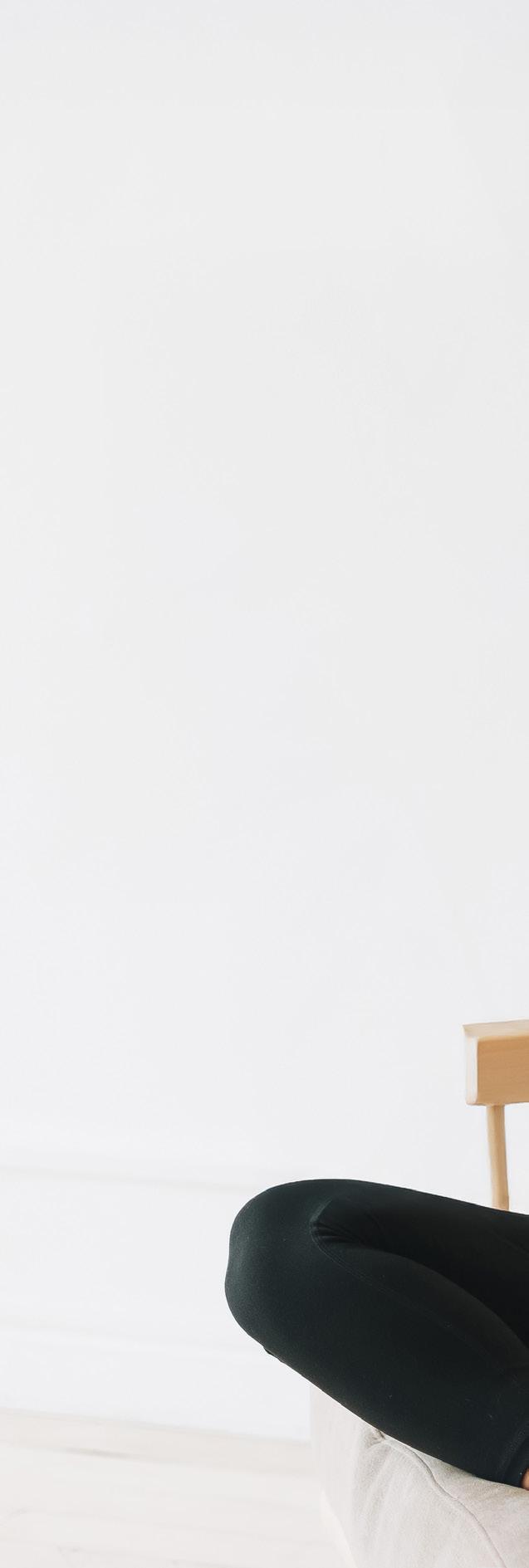
• Emotional wellbeing during pregnancy is just as important as physical health.
• Early signs of anxiety or depression can be subtle but shouldn’t be ignored.
• Support from friends, family and professionals can make a big difference.
“Offering empathetic, non-judgmental support and practical assistance can create a safe space for your friend to navigate challenges.”
– Anna Smyth, Clinical Psychologist



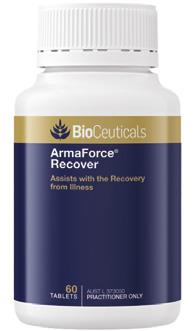


One in 10 women and one in 20 men will experience antenatal depression, and more than one in five pregnant women will experience an antenatal anxiety disorder. 4,5,6
The key to supporting someone during pregnancy is noticing the signs of emotional upset early. According to Anna, it can help to know if your friend has a pre-existing condition as this may increase their risk of perinatal anxiety or depression.
“Key signs to look out for include persistent, generalised anxiety and worry, irritability, mood swings, withdrawal from social activities and extreme fatigue,” she says. “They may have panic attacks, intrusive or suicidal thoughts, having little interest in things they used to enjoy and low mood.”
More subtle signs might include changes in sleep or eating patterns. While emotional ups and downs are normal in pregnancy, prolonged feelings of sadness or worry may be a sign of something more.7
“If they’ve been experiencing anxiety or low mood for more than two weeks, it may be time to talk to someone,” Anna says.
When checking in, choose a private moment when your friend feels safe. Use gentle, non-judgmental language and let them know you’re there for them.
“Approaching a friend who may be struggling requires sensitivity,” Anna says. “Listen actively and validate their feelings, acknowledging the challenges they might be facing.”
Offer ongoing support and follow up after the conversation. Just knowing you care can help more than you may realise.
“The best and easiest way [to offer support] is by just being there; ensure your friend knows that you won’t judge them and will be an empathetic ear when they need it,” Anna says.
4 https://www.cope.org.au/expecting-a-baby/mental-health-conditions-pregnancy/antenatal-depression/
5 https://www.gidgetfoundation.org.au/gidget-blog/spotting-mental-health-issues-in-pregnant-friends
6 https://www.cope.org.au/wp-content/uploads/2023/07/COPE_Antenatal-Anxiety_Consumer-Fact-Sheet-2023.pdf
7 https://www.cope.org.au/expecting-a-baby/mental-health-conditions-pregnancy/antenatal-depression/
While emotional ups and downs are normal in pregnancy, prolonged feelings of sadness or worry may be a sign of something more.
Practical support might include helping book appointments, or giving them time back by cooking, cleaning or shopping. Light physical activity, like going for walks, can help boost your friend’s mood, and limiting time on social media may also assist their wellbeing.
“Early intervention is key, as antenatal difficulties can extend into the postnatal period if not managed,” Anna says.
Seeking support from a GP, obstetrician or psychologist is an important step. A Mental Health Care Plan can provide access to Medicare-rebated sessions, and organisations like Gidget Foundation Australia offer bulk-billed support for expectant and new parents.
Lifeline (13 11 14), PANDA (1300 726 306) and the Mental Health Line (1800 011 511) offer round-the-clock support. Gidget Foundation Australia (gidgetfoundation.org.au / 1300 851 758) supports all expectant and new parents, including those in the LGBTQIA+ community.
Helps enhance immune system function
Biome Daily™ Probiotic has been formulated with two clinically-studied1,2 probiotic strains, Lactobacillus plantarum
HEAL9 and Lactobacillus paracasei 8700:2, which have been shown to help reduce the occurrence of common colds.
When antibiotics are needed this winter season, Biome Advanced™ Probiotic has been formulated to help support beneficial gut bacteria during and after antibiotic use. 3
Supports good gut bacteria alongside antibiotics
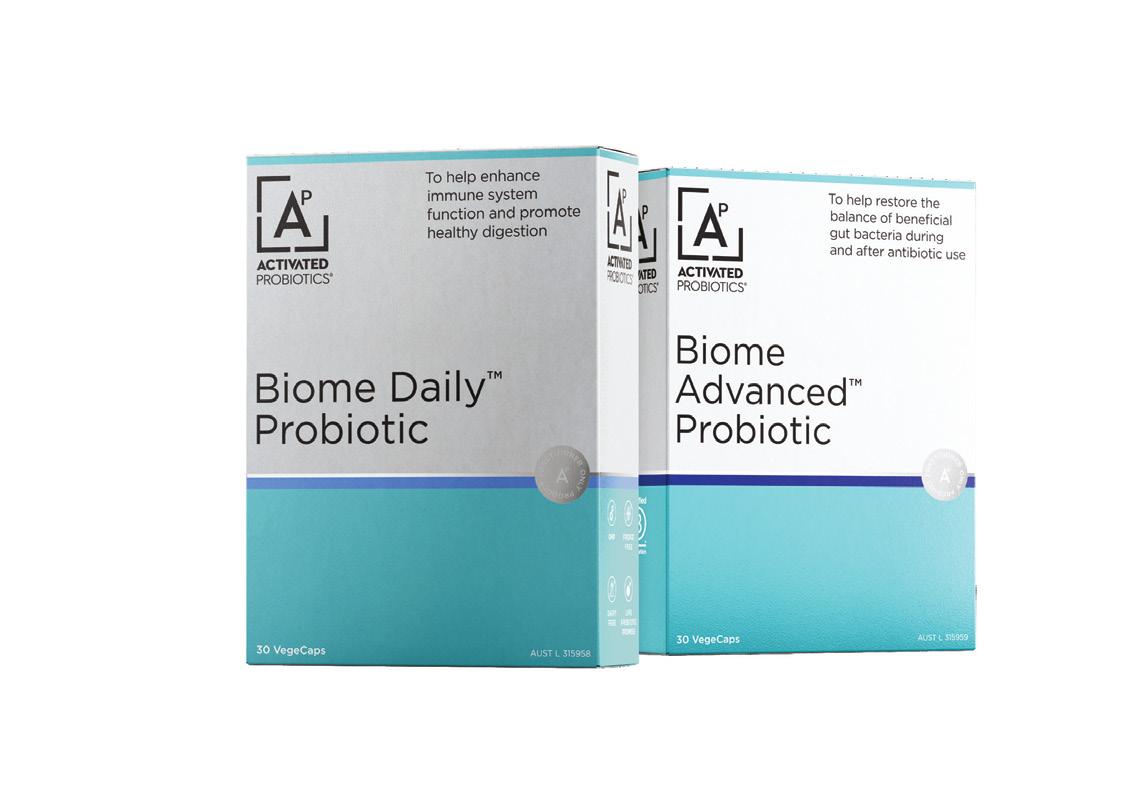


If you’ve ever come away from a medical appointment having forgotten to ask something, realising you could have got that repeat prescription or you’re already confused by the instructions, this is for you.
Whether you’re visiting a medical centre for antibiotics for that lingering cough or you have a follow-up appointment about the results of a test, these eight tips will help you get the best out of every consultation.
1 Write down questions
Before your appointment, jot down any symptoms, concerns or questions you have. That way, you won’t forget anything important, which is easily done if you’re unwell or feeling stressed. If you’re embarrassed about asking something, you can simply hand over your notes.
2 Prioritise your concerns
If your appointment is short, prioritise the most important questions on your list. Ask your GP what can be dealt with today and what might require follow-up visits.
3 Medications and health history
Write down a list of your medications, supplements and known allergies to show your Doctor. This way, they’ve got all the information they need to give you the best care. Don’t forget to let them know about anything that’s changed since your last visit, including any new symptoms or treatments.
4 Take notes
Bring a notebook to write down key information or use your phone to take notes. Doing this can help you remember the advice given to you, especially if there’s a lot of information provided.
Translation and interpreting services are available free of charge for all Medicare-eligible patients. These help patients who are culturally and linguistically diverse (CALD) to communicate effectively with their healthcare providers. Your Doctor or clinic can arrange a free telephone interpreter through the Translating and Interpreting Service (TIS National) if needed.

5 Ask for clarification
If you’re not sure about something your Doctor has said, repeat what you have understood and ask them if it’s correct. If it’s not, they’ll clarify. If you’re on a new medication, ask what the side effects are, what you can expect and how to manage your health condition at home. You can also ask for written instructions.
6 Bring a friend
If you’re feeling nervous or overwhelmed, take a loved one with you. They can help you remember important points and offer support. They can also ask questions you might forget or feel too shy to ask.
7 Record the appointment
You might find it helpful to record your consultation on your phone (with your Doctor’s permission) so you can refer to it later.
8 Follow-up if necessary
If you leave your appointment and realise you missed something or feel unsure, don’t hesitate to call your GP’s office for clarification or to schedule another appointment.

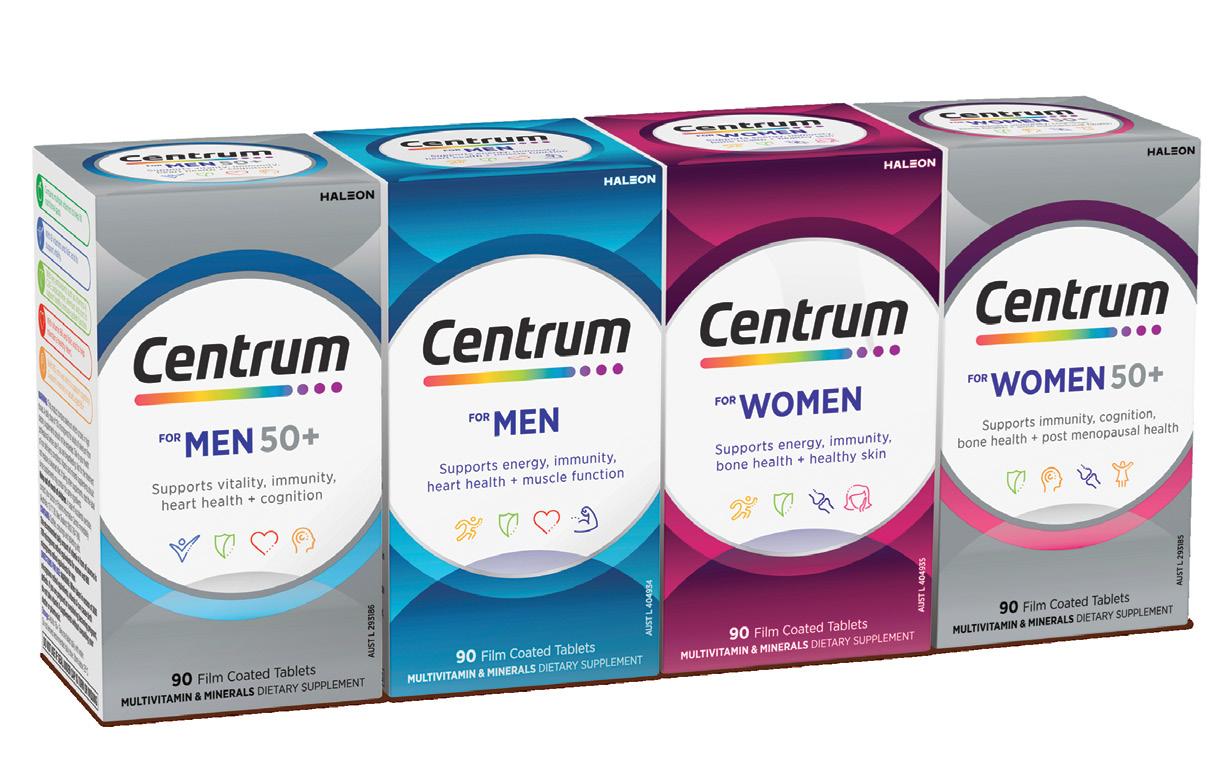


A well-stocked medicine cabinet doesn’t need to be costly or complicated, but it can make all the difference when unexpected health issues arise.
Your health needs can change with the seasons, and your medicine cabinet should too. Winter is the perfect time to restock and refresh, with a focus on cold and flu remedies, pain relief and soothing treatments for sore throats and stuffy noses.
With a little planning and organisation, your medicine cabinet can become your first line of defence – especially in Winter, when colds, flu and other bugs are circulating.
Start with these essentials and look for Blooms The Chemist’s brand products, which may help to keep the costs down:
· Pain and fever relief: Paracetamol and ibuprofen (adult and child formulations).
Cold and flu care: Vapour rubs, saline nasal sprays, throat lozenges, thermometer.
· Allergy relief: Antihistamines, corticosteroid nasal sprays, eye drops.
• A quick seasonal check ensures your cabinet is ready year-round.
• Safe storage and clear labels are a must – especially in homes with children.
• Expiry checks help keep your medicines safe and effective.
· Digestive care: Antacids, electrolyte sachets, anti-nausea tablets.
First aid: Antiseptic cream, sterile gauze, tweezers, bandages, gloves.
· Prescribed medication: Clearly labelled with dosing instructions.
· Seasonal soothers: These tend to change with the seasons, so sunscreen, aloe vera gel and insect bite relief for Summer and cold and flu tablets, nasal decongestants and cough syrup for Winter.
If someone in your household has a chronic condition like asthma or diabetes, make sure you have enough medication for both daily management and emergencies.
Keeping a few COVID tests on hand at home can be helpful just in case your employer requests a negative test result after a period of illness. →




Medications don’t last forever. Expired or poorly stored medications can lose effectiveness or become harmful, particularly liquid medicines like antibiotics and eye drops.

“Most medicines deteriorate over time, making them less effective and potentially harmful,” says Sarah Spagnardi, spokesperson for NPS MedicineWise.2 “Eliminate any that are past their expiry date or no longer needed.”
Don’t throw old medications in the bin or flush them. Instead, return them to your local Blooms The Chemist where they can be disposed of via the Return Unwanted Medicines (RUM) Project.3
“Most medicines deteriorate over time, making them less effective and potentially harmful.”
– Sarah Spagnardi, NPS MedicineWise
Store it safely
How and where you store your medicine can affect its safety and effectiveness – and some common spots may do more harm than good. According to Dr Sam Hay, GP and director of a Sydney medical practice, the bathroom is one of the worst places to keep medicine.1
“Medications should be stored above zero and below 25 degrees,” he says. “Both the bathroom and kitchen experience temperature and humidity extremes from showers and cooking – and that’s not great for medicine.”
Instead, choose a cool, dark space with a consistent temperature. “The linen cupboard or bedroom can be ideal,” adds Dr Hay. “Just make sure it’s out of reach of little hands.”
Smart storage tips:
Choose a cool, dry spot away from heat and sunlight. Store out of children’s reach – a high shelf or lockable box is best.
Group items by use (e.g. cold and flu, first aid) in small, handy containers.
· Keep dosing tools (syringe/spoon) with the right medicine.
For households with young children, regularly check childproof caps and keep sharp tools like scissors or tweezers secured.
An organised, up-to-date cabinet means you can act fast –whether it’s a stubbed toe, a sudden fever or an insect bite. Taking a few minutes each season to check expiry dates, update supplies and tidy your cabinet ensures peace of mind.
When the unexpected happens, especially during the Winter months, you’ll be ready for whatever comes your way.
If you have these items in your medicine cabinet, you’re all set for Winter:
Scan the QR code to view our Winter
Ask us your worst, and we’ll do our best!
Our friendly Pharmacists are always here to help. They really have heard it all, so no topic is off-limits. Here, Blooms The Chemist Pharmacist Kylie Bond shares her expert advice on your most personal questions.

Hoping it’s not what I think it is I have two dogs and they have worms, which has been gross. I’m affectionate with them and let them lick me all the time. Is it possible to get worms from them? If I catch them, can I give them to my family? They won’t be happy if they got them too!
– James, 55, Hindmarsh, SA
I have to agree with you, James –worms are gross. While it’s not common, it’s possible to contract certain types of worms from dogs (and cats), like tapeworm and roundworm.1
Considering your dogs have had worms recently, good hygiene practices and regular pet deworming are key to stopping the spread. Good hygiene

includes washing your hands after handling your dog, avoiding direct contact with dog faeces, and picking it up and disposing of it properly.
While it’s rare, avoid letting your dogs lick your face as this can also transmit worms.
For an extra layer of care, if anyone in the house has symptoms of worms – fatigue, weight loss or visible signs of worms in their stool – you should visit your local Blooms The Chemist Pharmacist who can advise you on the best treatment.2
Stinky no more!
I’m not sure if you remember my question (HealthPlus Summer 2024/25 issue), but I’m the mum with two teenagers who had bad breath. We took your advice and visited our Dentist, and it turns out that one needed a tooth out and another had a fungal infection! I wouldn’t have thought to go to the Dentist.
Thank you so much!
– Tina, 49, Geraldton, WA
I certainly do remember your question, Tina. I’m really pleased your Dentist was able to help and that the boys are feeling better. Thanks for letting me know – I’m so glad I was able to help.
1,2 https://www.healthdirect.gov.au/worms-in-humans
Does it shrink?
I’ve been seeing a lot on Facebook lately about how your vagina shrinks during menopause. Is that true? It didn’t sound right and I was too embarrassed to Google. – Sam, 44, Acacia Hills, NT
Good question, Sam. The hormonal changes of menopause affect a woman’s whole mind and body, including the vagina.
The labia minora (the vagina’s inner lips) can lose plumpness or fullness and, in some cases, disappear altogether. This is due to the decline in oestrogen that occurs during menopause.
Other vaginal changes can occur, including dryness and fragility. This condition, called genitourinary syndrome of menopause (GSM), can affect many women.
The good thing is that research suggests that Menopausal Hormone Therapy (MHT) – medicine that contains oestrogen, progesterone and sometimes testosterone – eliminates GSM symptoms in 75% of cases.3
If you’re experiencing some symptoms of GSM, which can include vaginal atrophy, irritation or frequent urination, you should visit your Doctor.4
3 https://www.jeanhailes.org.au/health-a-z/vulva-vagina/vulval-vaginal-conditions/vaginal-atrophy
4 https://www.mayoclinic.org/diseases-conditions/vaginal-atrophy/symptoms-causes/syc-20352288

“Will the cold make me sick?”

Absolutely freezing
It’s really cold in my house this Winter. Will I get sick from the cold? I don’t want to catch the flu!
– Jane, 45, Bakewell, NT
Winter is definitely here and no-one wants to risk getting sick with a cold or the flu.
While being cold doesn’t directly cause you to get sick, exposure to colder temperatures at this time of year can reduce the effectiveness of our body’s natural defences. This includes our immune system’s ability to fight off the viruses that cause colds and flu.5
You can protect your health during Winter by getting a flu vaccination and maintaining a healthy lifestyle, like eating well, getting enough sleep and staying warm. All of these steps can help maintain
your immune system and support it when it needs a bit of extra help.6
I don’t need a flu shot, right? I got my flu shot last year and I still got sick, so I’ve decided not to get one this year. Don’t flu shots provide protection forever, like other vaccines?
– Frank, 66, Gold Coast, Qld
I understand it can be frustrating, but there are a few things to consider before deciding whether to get your flu shot. It’s worth noting that not all vaccines provide protection forever. Some, like COVID or tetanus, require boosters at a later date.7
The reason there’s a new flu vaccine every year is that there are so many
different strains of the flu virus that it’s impossible to vaccinate for all of them. The flu vaccine protects you against the four worst strains of the season, which also mutate every year.
This means that while you might have been protected from the worst strains last year, your immune system isn’t prepared for the ones coming this year and can’t respond quickly if you get sick.
Being vaccinated doesn’t mean you can’t get a cold, but it does mean you have less risk of experiencing severe illness, hospitalisation or potential death from flu.
Being vaccinated also means you’re protecting the more vulnerable sections of our population, like the very young or the elderly, from getting the flu.
If you’ve got a personal question you want our Pharmacists to answer, please email it to editor@blooms.net.au or scan the QR code to complete our online form. For expert advice you can trust, speak to your local Blooms The Chemist.
Note: We can only answer questions through the pages of Healthplus. If your query is urgent, chat to one of the team at your local Blooms The Chemist.
5 https://www.bupa.co.uk/newsroom/ourviews/cold-weather-illness
6 https://www.healthline.com/health/cold-flu/cold-flu-secrets
7 https://immunisationhandbook.health.gov.au/contents/vaccine-preventable-diseases
*Rapid nasal symptom relief
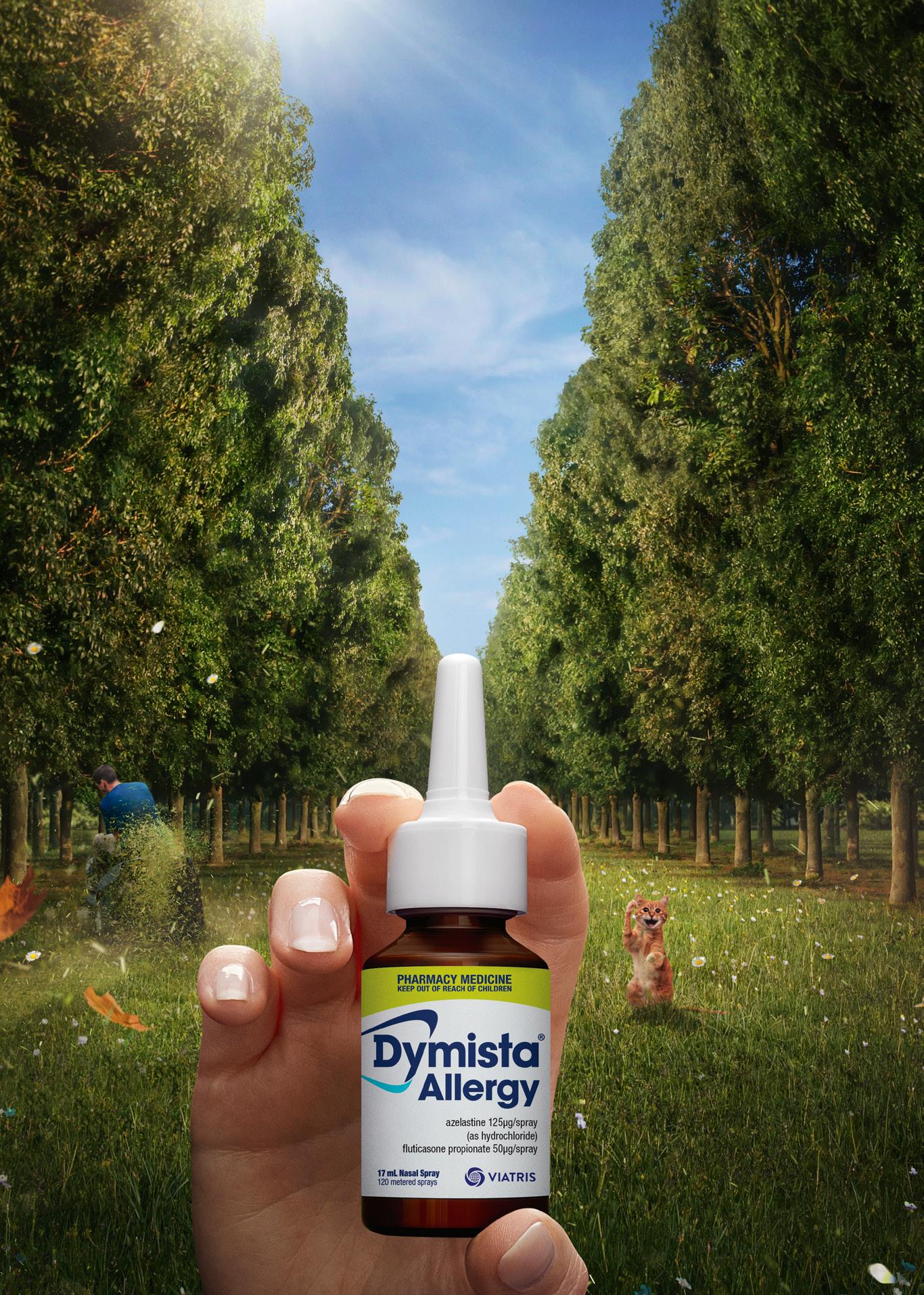
Always read the label and follow the directions for use.
Treats moderate to severe hayfever symptoms.
References: 1. Bousquet J et al. J Allergy Clin Immunol Prac 2018;6(5): 1726–1732. (Funded by MEDA Pharma GmbH & Co. KG). 2. Dymista® Allergy Product Information. Dymista® is a Viatris company trademark. Copyright © 2025 Viatris Inc. All rights reserved. AU-DTC-2025-00023. SSW. DYM-004996-00. Date Prepared: April 2025.

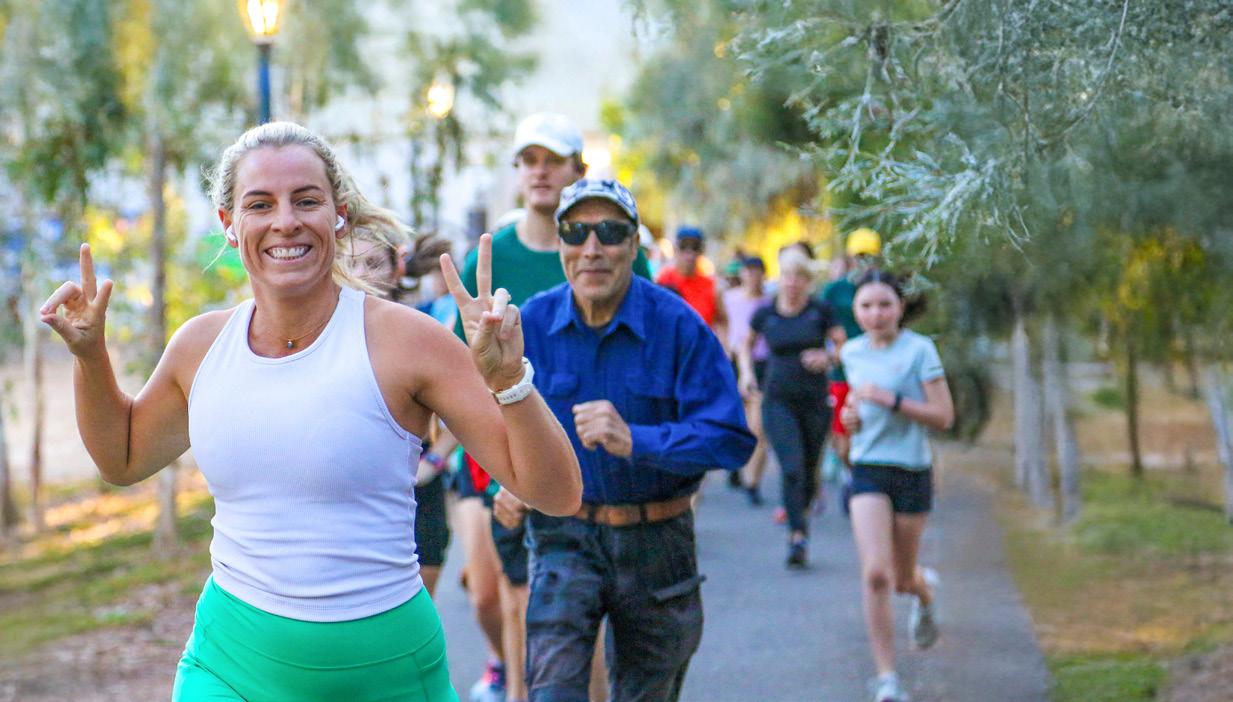
Struggling to get moving? You’re not alone. In 2022, just 22.4% of Australians aged 18–64 met the recommended weekly exercise guidelines. While we know strength training and aerobic activity is vital for our physical and mental wellbeing, getting started is often the hardest part.
Performing exercise with others could be the solution. Group exercise shifts the focus from how we exercise to who we do it with. For many, community and connection are just as important as the activity itself.
“People who have large and varied social circles have a higher life expectancy and better quality of life than people who don’t.2 This is why socially focused activities such as parkrun are so important,” says parkrun Asia Pacific Head of Communications Glen Turner.
“When parkrun re-opened post-COVID, we surveyed parkrunners to ask them what their main motivation was for coming back – the most common response was ‘to be with other people’.”
For runners (or would-be runners), parkrun is a free fivekilometre event held every Saturday morning in more than 500 communities around Australia. More than 1.2 million Australians have taken part since 2011.3
1
• In 2022, only 22.4% of Australians aged 18–64 met recommended exercise guidelines.1
• Group exercise boosts motivation through community and connection –we’re more likely to show up when others are expecting us.
Group exercise boosts community, motivation and accountability –and it’s great for your health too.
• Exercising with others taps into the Social Facilitation Effect –we perform better and push harder when we’re not doing it alone.
“parkrun is open to everyone to walk, run, volunteer or simply spectate,” says Glen. “It’s fun, free and has no time limit, so is ideal for families or those new to exercise.”
Group exercise taps into something deeper than just physical fitness – the power of connection. Known as the Social Facilitation Effect, we tend to perform better when we’re with other people compared to when we’re alone.4 Whether it’s pushing a little harder in a workout or simply showing up more consistently, the presence of others can be a powerful motivator.
One of the great things about group exercise is how varied and inclusive it can be. From gym-based classes like HIIT (High-Intensity Interval Training), spin (cycling), strength training and classes specifically for over 50s, to communityled options including running clubs, yoga, dragon boating, or walking and swimming groups, there’s an exercise out there for everyone.
“The key is finding a group exercise that you genuinely enjoy as you’re more likely to stick with it over time,” says Exercise Physiologist Lauren Sexton.
But the benefits of moving your body go far beyond the workout itself. →

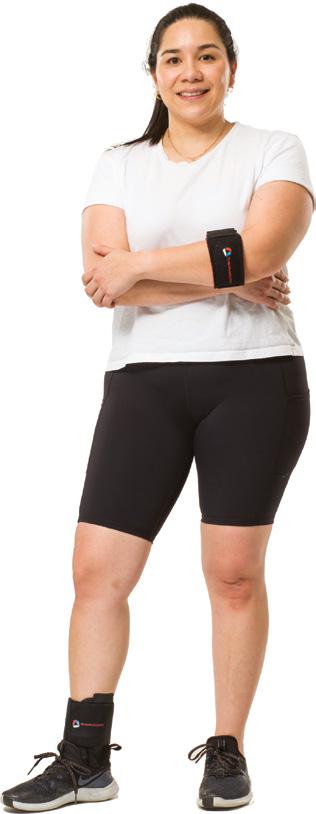
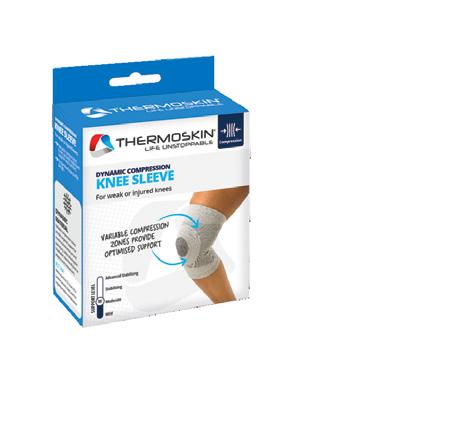


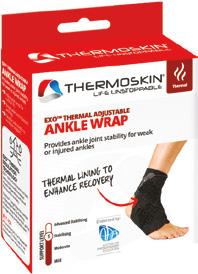

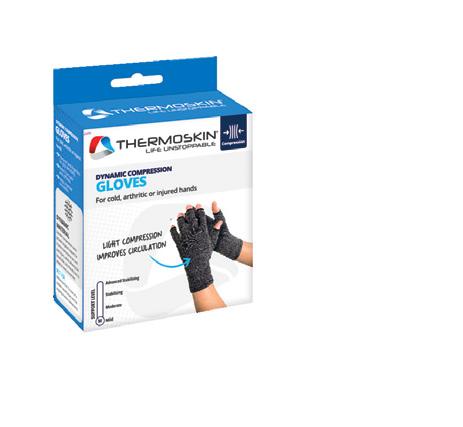
Always read the label and follow the directions for use.

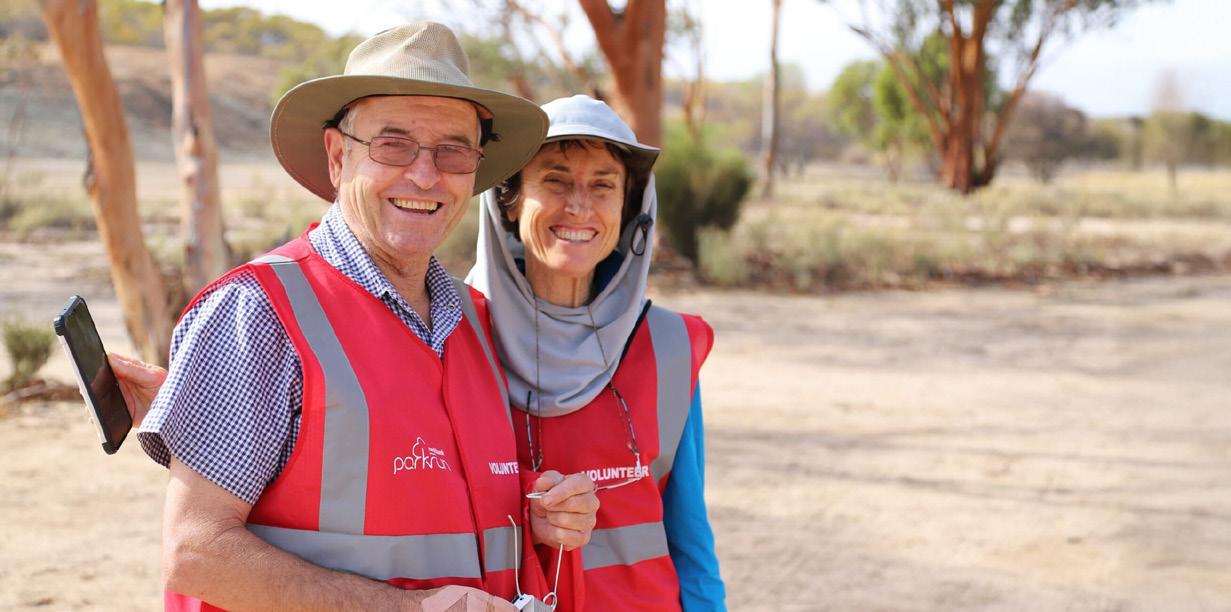
“When people exercise together, they’re more likely to show up, stay consistent and enjoy the experience.”
– Lauren Sexton, Exercise Physiologist
“Group exercise fosters connection, builds routine and helps with accountability,” Lauren explains. “When people exercise together, they’re more likely to show up, stay consistent and enjoy the experience.”
This sense of shared purpose is one reason so many Australians are turning to community-based fitness programs. And the results speak for themselves.
“One of the most noticeable changes we see in clients who regularly attend group exercise classes is a boost in mood and confidence,” Lauren says. “People often start for the physical benefits but stay for the social connection.

“Group classes can also reduce feelings of isolation and anxiety – especially for older adults or those managing chronic conditions. Over time, you see a real lift in their sense of belonging, self-esteem and overall wellbeing.”
Glen Turner agrees. “Health professionals are increasingly referring parkrun to clients as a weekly, low-barrier activity with no cost or commitment,” he says.5
Let’s get moving
Community group exercise is fun, inclusive and easily accessible (see: ‘Where to start’).
Walking groups offer a social, low-impact way to keep active, especially for older adults. Heart Foundation Walking is
5 https://blog.parkrun.com/au/2019/09/30/survey-reveals-health-professionals-prescribing-parkrun-to-boost-australias-health/
6 https://walking.heartfoundation.org.au/
7 https://www.meetup.com/en-AU/
Australia’s largest free network with over 1200 walking groups nationwide.6 Social platform Meetup also offers fitnessfocused walking groups across the country and can be a great way to make friends when moving to a new area.7
Community groups are also popular among swimmers. The Bold & Beautiful Swim Squad in Manly, on Sydney’s Northern Beaches, is one example of the power of exercising together. Seven days a week, 365 days a year, up to 300 swimmers gather for a morning swim. With a strong focus on community, belonging and wellbeing, the cohort doesn’t start the return swim until the last swimmer has reached Shelly Beach.
So, if you’re looking for a reason to move, find your people –because fitness is better together.
• Social media: Find free local bushwalking groups and running clubs online.
• Community organisations: PCYC, YMCA and state-run programs like Active and Healthy (NSW), Active and Healthy Events (Qld) and Get Moving Tasmania offer community exercise groups and classes, from futsal to pickleball.
• Heart Foundation Walking is Australia’s largest walking group network, with 1200+ groups.
• Meetup.com hosts a variety of free local walking and running groups.
• parkrun.com.au and walking.heartfoundation. org.au offer walks and runs with others.

• Seasonal produce is packed with nutrients and bursting with flavour.
• Frozen fruits and vegetables are just as nutritious as fresh –and more convenient.
• Get creative with Winter ingredients to make meals that are hearty and support your immune system.
Eating well in Winter begins with choosing in-season produce to support your immunity. Here’s how to stay nourished, warm and energised during the colder months.
Eating a variety of fruits and vegetables is one of the best ways to support your immune system. In Winter, choosing seasonal produce offers even more benefits – for your body and your budget.
Seasonal produce is often fresher, more nutrient-rich and better value because it doesn’t have to travel far or sit in storage.1 When picked at peak ripeness, fruits and vegetables have higher levels of antioxidants like vitamin C, which helps boost your immune system.2
Winter is the season when your body needs extra nutritional support. As viruses and illnesses spread and energy dips, eating the right foods can help keep your immune system strong and lift your mood.
When picked at peak ripeness, fruits and vegetables have higher levels of antioxidants like vitamin C, which helps boost your immune system.
Nutritionist Susie Burrell shares some nutrient-dense Winter superfoods worth adding to your plate during the colder months.3
· Red capsicum: Just half a cup of red capsicum contains the recommended daily intake of vitamin C. It’s also rich in fibre, beta-carotene and antioxidants that help reduce inflammation and support immune function.4
· Eggs: Eggs are packed with protein, zinc and more than 20 essential nutrients, including vitamin D.5
Atlantic salmon: A top source of omega-3 fats, salmon is also rich in zinc, selenium, iodine and vitamin D – all important for your immune system and energy production.6
Leafy greens: Think kale, spinach, Brussels sprouts and broccoli. These greens are full of vitamins A, C and K, plus folate and fibre to help your cells stay healthy and resilient all Winter long.7
Fresh versus frozen
Fresh produce is fabulous – but don’t overlook frozen options. Frozen fruits and vegetables are snap-frozen at peak ripeness, locking in nutrients.8
They’re budget-friendly, reduce food waste and are great for quick, healthy meals. Keep frozen vegetables on hand
1 https://nutritionaustralia.org/division/nsw/5-key-nutrients-to-beat-cold-weather-blues/
2 https://greenendeavour.com.au/whats-the-cost-of-eating-out-of-season/
3 https://coach.nine.com.au/diet/winter-superfoods-a-dietitian-eats-every-day/0b2576cd-397a-4376-89f0-a9153812f811
4 https://www.mayoclinic.org/healthy-lifestyle/nutrition-and-healthy-eating/expert-answers/vitamin-c/faq-20058030
5 https://www.australianeggs.org.au/nutrition/nutrients-and-vitamins 6 https://www.betterhealth.vic.gov.au/health/healthyliving/fish 7

for stir-fries and soups, and stock up on frozen berries for smoothies and baking.
Winter vegetables are comforting, versatile and full of cold-fighting nutrients. Dr Sandro Demaio, medical doctor and author of The Doctor’s Diet, encourages getting creative in the kitchen.9
“Winter vegetables are tasty and versatile on their own, but they’re also the perfect base for leftovers,” says Dr Demaio. “You can’t go wrong by roasting your favourite vegetables and blending them with good-quality stock to make a hearty soup.”
Leftover roast vegetables are also ideal for Winter work lunches. “Mix them with parsley, barley, quinoa or lentils for a simple salad – and drizzle with olive oil. Or add them to a frittata for something more filling.”
Feeling adventurous? “We often reach for potatoes and pumpkin,” he continues. “But let’s branch out this Winter with fennel, onions or seasonal purple carrots.”
Add a delicious flavour boost with immune-supporting herbs and spices like garlic, ginger, turmeric and cinnamon – natural all-rounders with anti-inflammatory and antimicrobial properties.10
8 https://research.reading.ac.uk/research-blog/2023/04/10/frozen-and-tinned-foods-can-be-just-as-nutritious-as-fresh-produce-heres-how/
9 https://www.nib.com.au/the-checkup/winter-vegetables-fruits-in-season
10 https://www.careabout.com.au/blog/boost-immunity
A balanced diet of fresh fruits and vegetables from the core food group is the best way to meet your nutritional needs, but some supplements may provide extra support during the colder months.
Vitamin D is particularly important in Winter, when reduced sun exposure – shorter daylight hours and wearing more clothes – can lead to deficiency.
“When our vitamin D levels are extremely low, they can affect how the body responds to infections,” says Vicki Kotsirilos, Associate Professor at Western Sydney University.11
Zinc and vitamin C supplements may be beneficial in supporting immune health if you’re feeling run down, recovering from illness or struggling to eat well.12
The evidence on the effectiveness of multivitamins, however, is mixed.13
Always consult your Doctor or Pharmacist before starting any new supplements.
11 https://www.theguardian.com/lifeandstyle/2022/may/26/whats-the-deal-with-vitamin-d-as-we-head-into-winter-its-an-important-consideration
12 https://www.verywellhealth.com/supplements-for-immune-health-11708034
13 https://www.livestrong.com/article/549254-multivitamins-vs-single-vitamins/

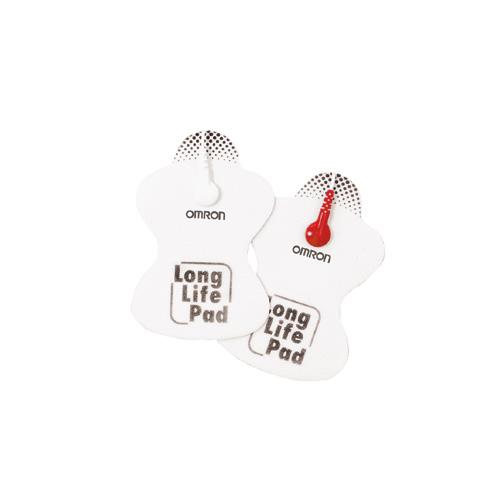
HV-F128
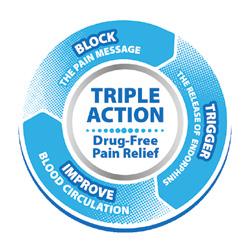
Premium & Easy to Use – One-touch setup, 12 therapy modes.
Drug-Free Pain Relief – Blocks pain, releases endorphins.
Custom Massage & Strength Settings – 4 modes, 10 intensity levels.
Smart Display Screen – Shows therapy time and frequency.
Advanced Therapy Options – Choose high or low frequency.
Long-Lasting & Portable – Reusable pads, carry bag.
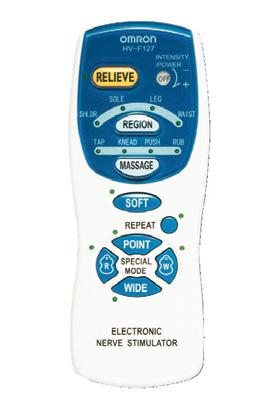
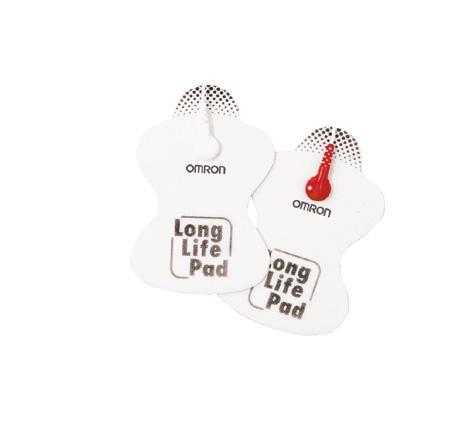
HV-F127
Compact & Easy to Use – One-touch control, 9 therapy modes.
Drug-Free Pain Relief – Blocks pain and releases endorphins.
Customisable Massage Settings – 4 modes, 10 intensity levels.
Mess-Free Long Life Pads – Up to 150 uses, no gels.
Everyday Pain & Injury Relief – Eases tension and boosts blood circulation.
Portable - Included Carry bag.
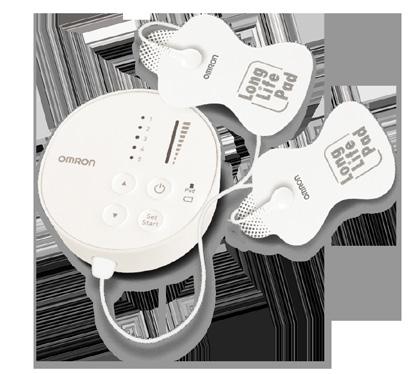
HV-F013
Pocket-Sized & Portable – One-handed use, on-the-go relief.
Drug-Free Pain Therapy – Blocks pain, releases endorphins.
Targeted Relief Options – 3 body zones, 2 massage modes.
Custom Intensity Settings – 10 levels, light-controlled operation.
Long-Lasting & Smart – Auto shut-off, 150-use pads, no gel.
Easy to Use Anywhere – Compact, simple, includes carry bag.
Always read the label and follow the directions for use



• Singing has all-round physical, mental and emotional health benefits.

• It can be used as a tool to address many of the anxieties of modern-day living.


• Joining a choir can build friendship connections and generate a sense of community.
The simple act of singing can be a powerful antidote, releasing feel-good chemicals, reducing stress hormones and creating a sense of calm and connection with others.
Anyone who has ever belted out a rendition of their favourite song understands just how good singing can feel. Whether in the car, dancing around the kitchen or at a concert, there’s power and liberation in projecting your voice to the heavens.
But have you ever stopped to think about the health benefits of a hearty sing-along? Exercising the body’s vocal cords doesn’t just provide us with a good physical workout – there are mental and emotional benefits too. As well as improving alertness, memory and concentration, singing is known to regulate emotional wellbeing and can play a role in reducing stress.
Singing with others as part of a choir can also foster strong social connections and feelings of confidence. Let’s look at some of the benefits to breaking out in song.
Singing isn’t just about making nice sounds – it’s exercise for your body. Singing requires deep breathing, which works the lungs and the muscles around the ribcage and activates blood flow around the body.1
A study published in PMC (PubMed Central) compared the physiological demands of singing with walking on a treadmill and found that singing elevates heart rate and oxygen consumption to a level consistent with a moderately brisk walk.2
1 https://heartfeltsupport.com.au/singing-what-happens-body-brain/
2 https://pmc.ncbi.nlm.nih.gov/articles/PMC9339901/
3 https://www.operanorth.co.uk/news/10-reasons-singing-is-good-for-you/
4 https://www.ox.ac.uk/research/choir-singing-improves-health-happiness-–-and-perfect-icebreaker
The increase in lung capacity required by singing makes it a valuable exercise for rehabilitation for lung conditions.
“Singing requires you to breathe in a controlled way, which helps increase lung capacity – it can benefit people who are on the road to recovery,” says vocal coach Marie Claire Breen of English opera company Opera North.3
Singing can improve your sense of happiness and wellbeing. When you sing, your body releases endorphins, serotonin and dopamine, the ‘feel-good’ chemicals that elevate your mood and help you feel motivated and content.4 →
Singing requires deep breathing, which works the lungs and muscles around the ribcage and activates blood flow around the body.
This practice can also contribute to feelings of serenity and acceptance. Listening to music and actively participating in it can release stored muscle tension and decrease levels of the stress hormone cortisol in the bloodstream.5 People who experience stress are often advised to breathe slowly and deeply, which is what we do when we sing.
People who sing with a choir say they feel an improved sense of belonging and interconnectedness. Making music together can be a great way to meet new people and build friendships, not to mention helping those who experience self-confidence issues.
Anna Humberstone, Director and Founder of Hummingsong Choirs, a network of 16 women’s community choirs across Sydney, Newcastle and Melbourne, says there’s something intangibly inspiring about lending your voice to a chorus.
“Being part of something bigger than yourself is one of the major powers of being in a choir,” Anna says. “The impact you can have bringing energy into a space with other people – it has a ripple effect you can’t quantify.”6
There are numerous friendly choir groups across the country that offer opportunities for newcomers to engage in song. Many are welcoming of all skill levels, require little to no ongoing commitment, and they practise songs spanning music styles from Handel to Hendrix.
The Australian National Choral Association (www.anca.org.au) can help you locate choirs in your area. Organisations such as Hummingsong (www.hummingsong.com.au) focus on the joy of singing for wellbeing and community connection, and Sing Australia (www.singaustralia.com.au) is a nationwide network of choirs that emphasises participation and fun.

Studies have shown that singing programs can help improve the quality of life of people with neurodegenerative diseases. For people with dementia, music can bring back memories and assist with feeling calm.7 For individuals with Parkinson’s, singing can assist with speech volume and control, with the potential to address depression, anxiety and stress.8
Healthplus reader Derek, from Western Australia, says singing regularly with a vocal coach has helped him manage some of the worst effects of Parkinson’s since he was diagnosed in 2008. “It has helped me with my speech and my breathing, while also giving me a chance to talk about my symptoms in a supportive environment,” he says.


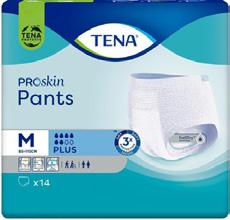






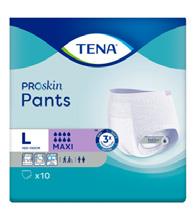
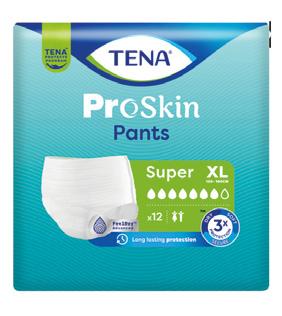
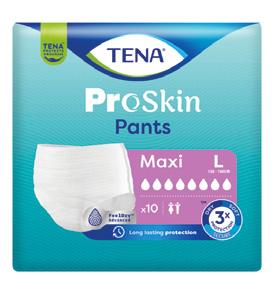

The Continence Aids Payment Scheme is an Australian Government program, providing a payment to assist with the costs of incontinence products.
What can you receive?
*The CAPS payment rate for 2024-2025 is $694.80.
To receive this payment, you need to meet all eligibility requirements. Check eligibility at health.gov.au/our-work/continence-aids-payment-scheme-caps




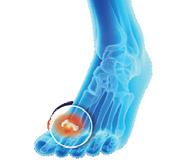

When the days are short and the chill sets in, it’s easy to stay tucked up indoors. But getting a bit of sunshine – even in Winter – is more important than you might think.
Despite all our beautiful beaches, stunning bushlands and sunny Summers, it can be surprising to learn that many Australians don’t get enough vitamin D, especially during the cooler months.
Sunlight helps our bodies make vitamin D, which plays an important role in keeping our bones strong by helping us absorb calcium – and without enough of the so-called ‘sunshine vitamin’, the risk of bone-thinning conditions like osteoporosis can increase over time.1
But that’s not all – vitamin D also has a big impact on how we feel. Low levels have been linked to low mood, tiredness and, in some cases, Seasonal Affective Disorder (SAD) – a type of depression that comes and goes with the seasons, often peaking in Winter.2
The Australian Bureau of Statistics estimates that up to one in four Australians have low levels of vitamin D, particularly those with darker skin, older adults and people living in the southern parts of the country.3
This is because darker skin produces less vitamin D from the same amount of sunlight,4 older people tend to spend less time outdoors, and older bodies simply don’t make it as efficiently.5 In southern Australia, where it gets colder than

1 https://pmc.ncbi.nlm.nih.gov/articles/PMC9607753/
2 https://ami.group.uq.edu.au/vitamin-d-and-mood
the rest of the country, people wear more layers, which further reduces their skin’s exposure to the sun.6
How much sunshine do we need?
Healthy Bones Australia says that just a few minutes of sun exposure on your face, arms or hands each day can help. In Summer, that might mean a 10-minute walk before 10am or after 3pm. In Winter, it might take a bit longer – up to 30 minutes several times a week, depending on where you live.7 The trick is to find a balance between getting enough sunshine and protecting your skin.
If you can’t get outside much due to working long hours, shifts or perhaps due to ill health, you’re not alone. That’s where food and perhaps even supplements come in. While it’s tricky to get enough vitamin D from diet alone, oily fish, eggs and fortified products like certain milks may help.8
“While it is true that vitamin D deficiency is more common in Winter, people can still be low in vitamin D due to other factors such as reducing time spent outdoors, wearing skin-covered clothing, having darker skin and using sunscreens,” says Pharmacist Tom (Qiannan) Xin, Blooms The Chemist Melton, Victoria. “The best way to check is via a blood test by your Doctor.”
Based on location, Healthy Bones Australia recommends the following sun exposure for healthy vitamin D intake: 9
Darwin (NT), Brisbane (Qld): A few minutes on most days.
Sydney (NSW), Canberra (ACT), Perth (WA): A few minutes on most days; two to three hours per week in June and July.
Adelaide (SA), Melbourne (Vic), Hobart (Tas): A few minutes on most days; two to three hours per week from May to August.
3 https://www.abs.gov.au/statistics/health/health-conditions-and-risks/australian-health-survey-biomedical-results-nutrients/latest-release
4 https://skinhealthinstitute.org.au/healthy-skin-guide/your-skin-vitamin-d-and-the-sun/
5 https://pmc.ncbi.nlm.nih.gov/articles/PMC9607753/
6 https://www.cancer.org.au/cancer-information/causes-and-prevention/sun-safety/vitamin-d
7 https://healthybonesaustralia.org.au/wp-content/uploads/2022/10/hba-fact-sheet-vitamin-d.pdf
8 https://skinhealthinstitute.org.au/healthy-skin-guide/your-skin-vitamin-d-and-the-sun/
9 https://healthybonesaustralia.org.au/wp-content/uploads/2022/10/hba-fact-sheet-vitamin-d.pdf
Discover our round-up of products to keep you and yours in tip-top shape.
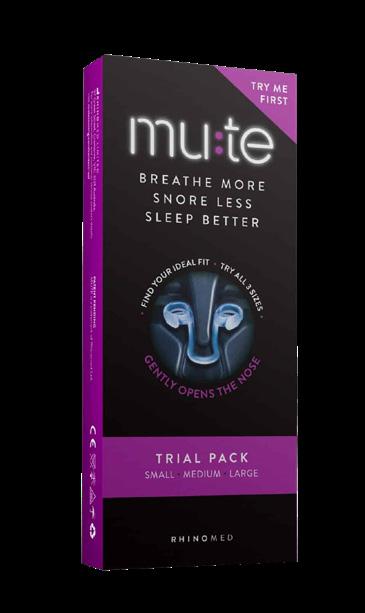
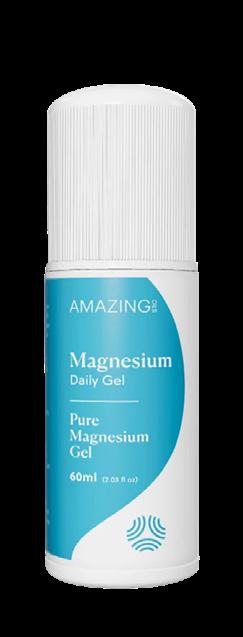
Mute Anti Snoring Nasal Dilator
Mute stents and dilates the nasal airways to allow snorers to breathe more easily through the nose while keeping the mouth closed.
Amazing Oils Magnesium Daily Gel
Raise your magnesium
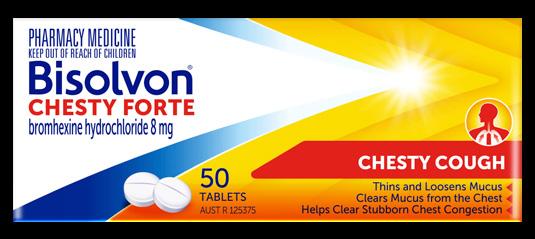
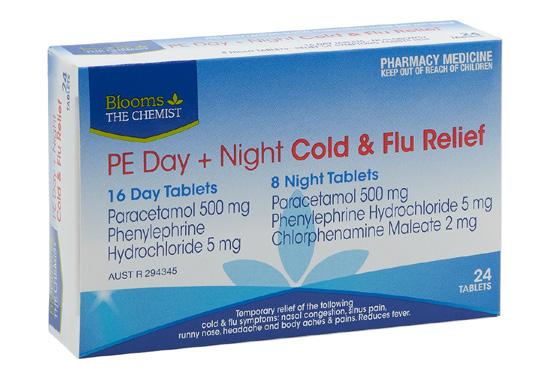
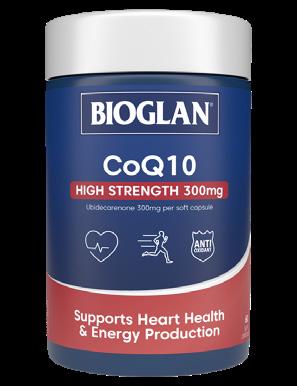
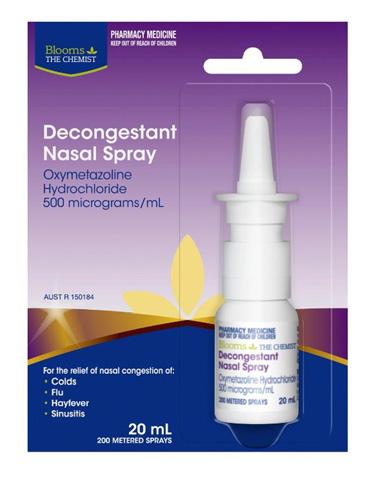
Bisolvon Chesty Forte Bromhexine thins, loosens and clears mucus from the chest to relieve stubborn chest congestion and chesty coughs. Non-drowsy formula.
Blooms The Chemist PE Day & Night Cold & Flu Relief
Two formulas relieve fever and headaches, blocked/runny nose and body aches and pains associated with colds and flu.
Bioglan CoQ10 High Strength Helps maintain the body’s store of CoQ10, an antioxidant that supports the cardiovascular system, healthy blood vessels and energy production.
Blooms The Chemist
Decongestant Nasal Spray
Provides temporary relief from nasal and sinus congestion due to colds, allergies and sinusitis for up to 12 hours.
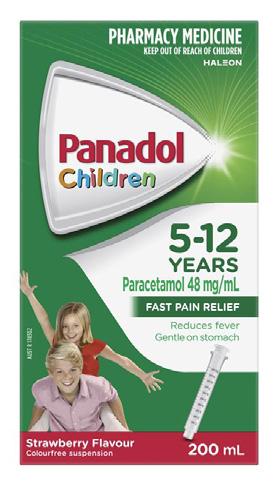

Children For kids 5–12 years. Provides temporary relief from fever and pain associated with teething, immunisation, earache, and cold and flu symptoms.


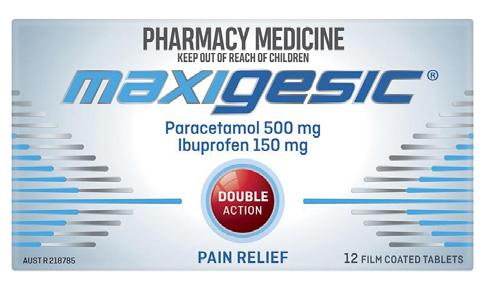

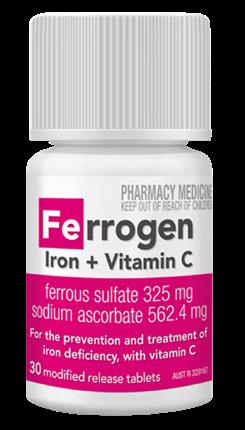
Codral Cold & Flu + Dry Cough
Combines three active ingredients to give effective relief from headaches and fever, aches and pains, blocked/ runny nose and dry cough.
Offers targeted relief to reduce swelling and pain from a sore throat, tonsillitis, pharyngitis, mouth ulcers, redness and inflammation.
Immune Defence Forte
Contains antioxidants such as black elderberries, vitamin C and zinc to help relieve pain symptoms of colds and flu.
Ego QV Gentle Wash
Dermatologically tested, fragranceand soap-free body wash formulated for dry and sensitive skin. PH balanced for conditions such as eczema and dermatitis.
Maxigesic Double Action Pain Relief
Combines paracetamol and ibuprofen in a unique double-action formulation for fast effective relief of pain and fever.
Ferrogen Iron + Vitamin C
For the prevention and treatment of iron deficiency, with vitamin C and modified release to enhance the absorption of iron. Suitable for pregnancy.
45
Approximate speed in km/h at which semen is ejaculated from the human body.1

1820
The year of the first recorded flu outbreak in Australia.4
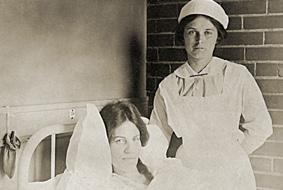
15.4m
As of May 2025, Blooms The Chemist has recycled 15.4 million medicine blister packs.2

86yrs
Females in the ACT have the highest life expectancy in the country.5

90
The bite force in kg that the masseter, a muscle in the jaw, can exert.3

20
The percentage of the body’s oxygen supply used by the brain.6

1 https://www.abc.net.au/triplej/programs/the-sunday-hook-up/all-you-need-to-know-about-jizz/9401192#

Clinically researched1 Tailored menopause care
Health professional only range*
Menopause is a universal yet deeply personal journey that every woman will experience. SFI Health is proud to introduce our new menopause range—Meno Thrive, Meno Soothe, and Meno Vital—a tailored suite of products designed to empower women through every stage of menopause.
Meno Soothe
For mental wellbeing and emotional balance, relieving symptoms such as mood swings, irritability, and mild anxiety in peri-menopausal women.
Meno Vital
Our menopause collagen complex, to support important, underlying aspects of health after menopause, including skin elasticity, cardiovascular function, and bone density.
Meno Thrive
For hot flushes, night sweats, fatigue, irritability, and supports healthy hormonal balance during menopause. NO PRESCRIPTION REQUIRED.
Ask your Blooms pharmacist about the menopause range from SFI Health. Available in store today.
ALWAYS READ THE LABEL AND FOLLOW DIRECTIONS FOR USE.
*Available exclusively behind the counter in pharmacy, available without prescription - ask the pharmacist. 1. Steels, E et al. Phytotherapy Research. 2017;31(9):1316-22. Funded by Gencor Pacific Pty. Ltd. Lopresti, A.L et al. J Meno-pausal Med. 2021;27(2):66-78. Funded by Pharmactive Biotech Products SL. Sangsuwan, W et al. J Der-matolog Treat. 2021;32(8):991-96.
yourBookflu vaccine It isn’t just a flu vaccine. It’s your commitment to
